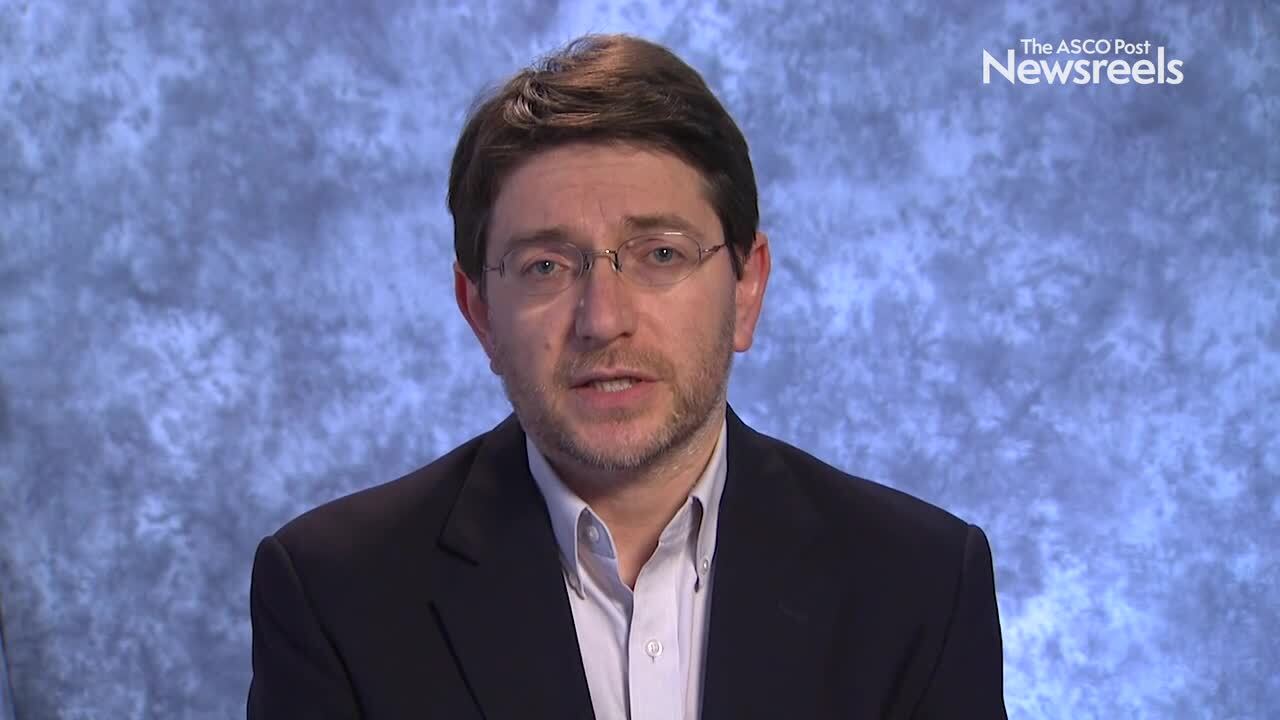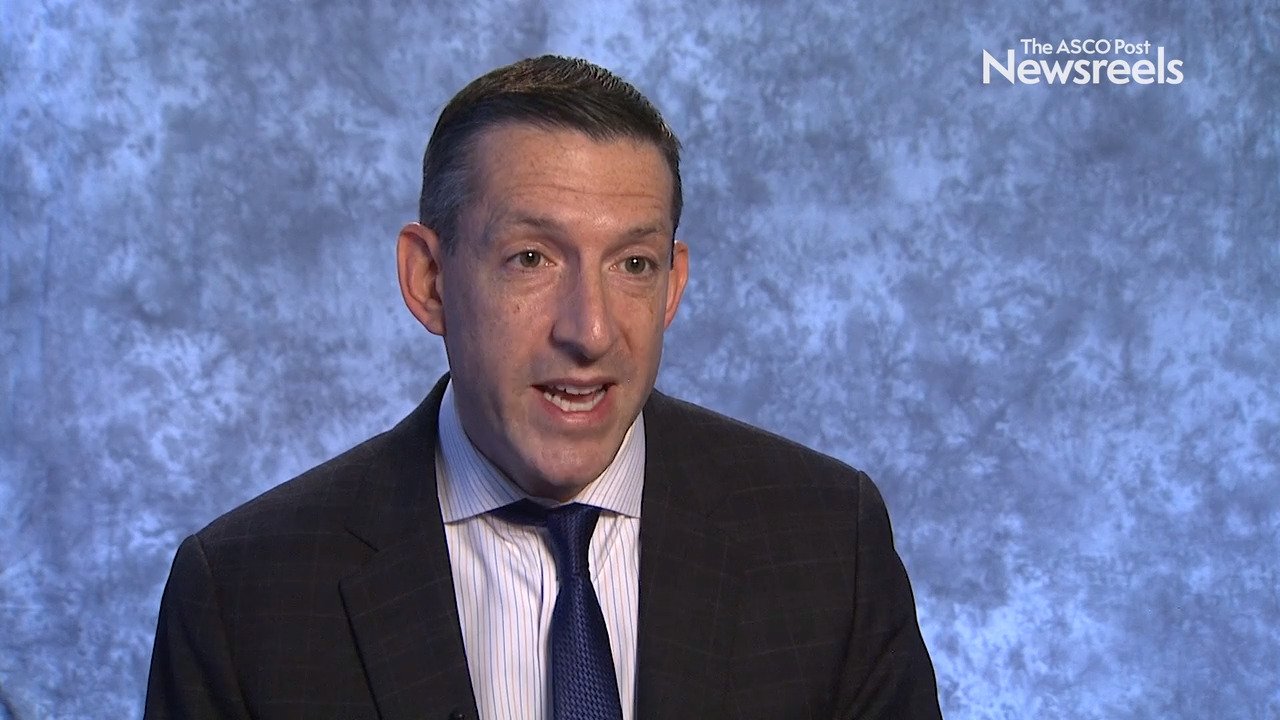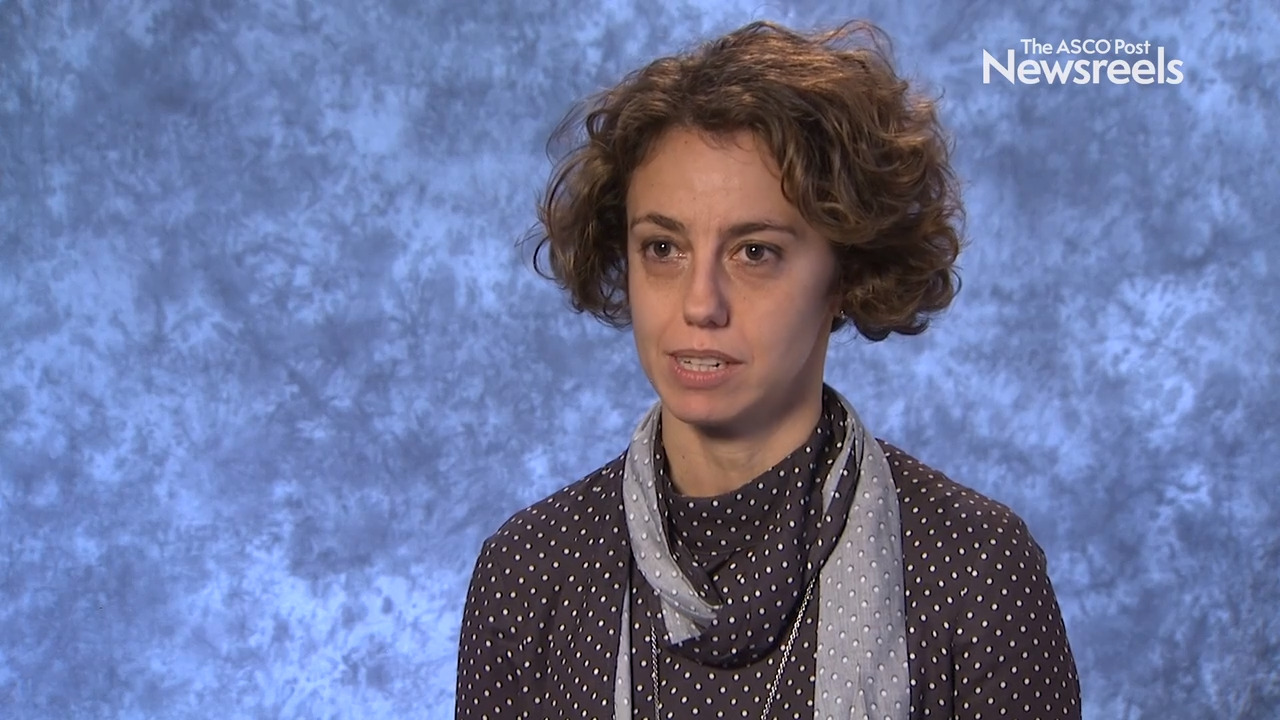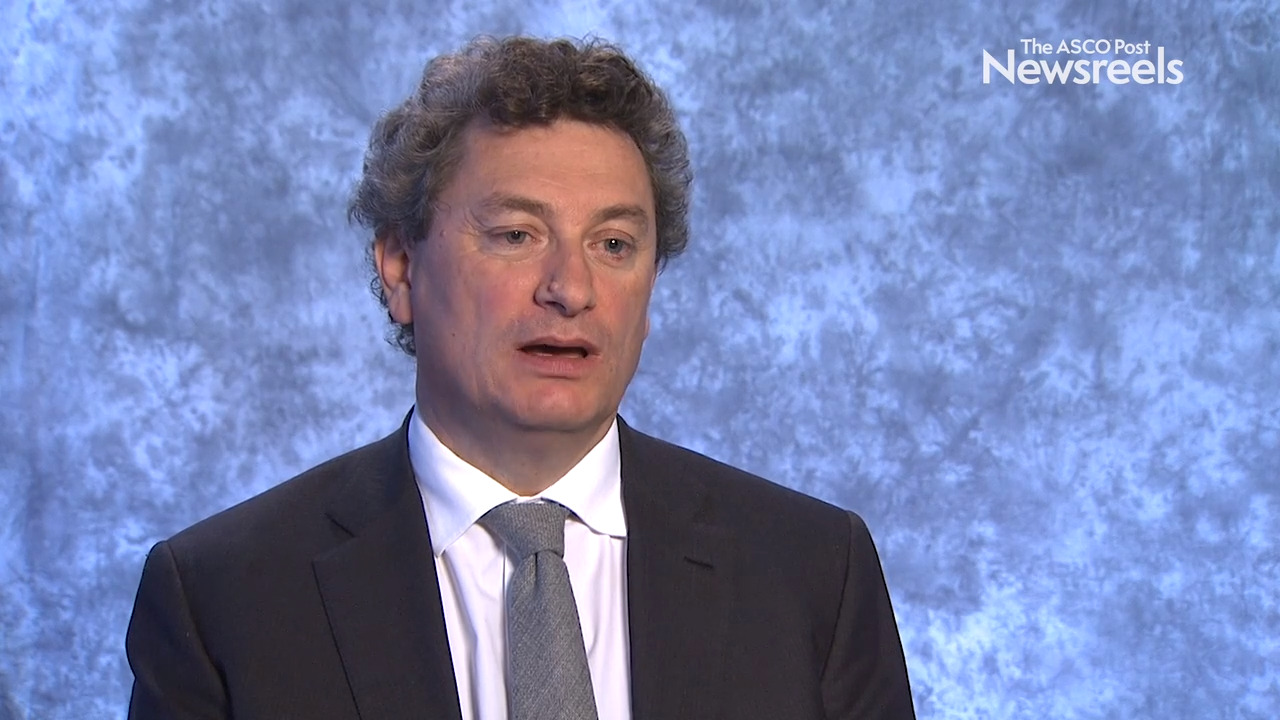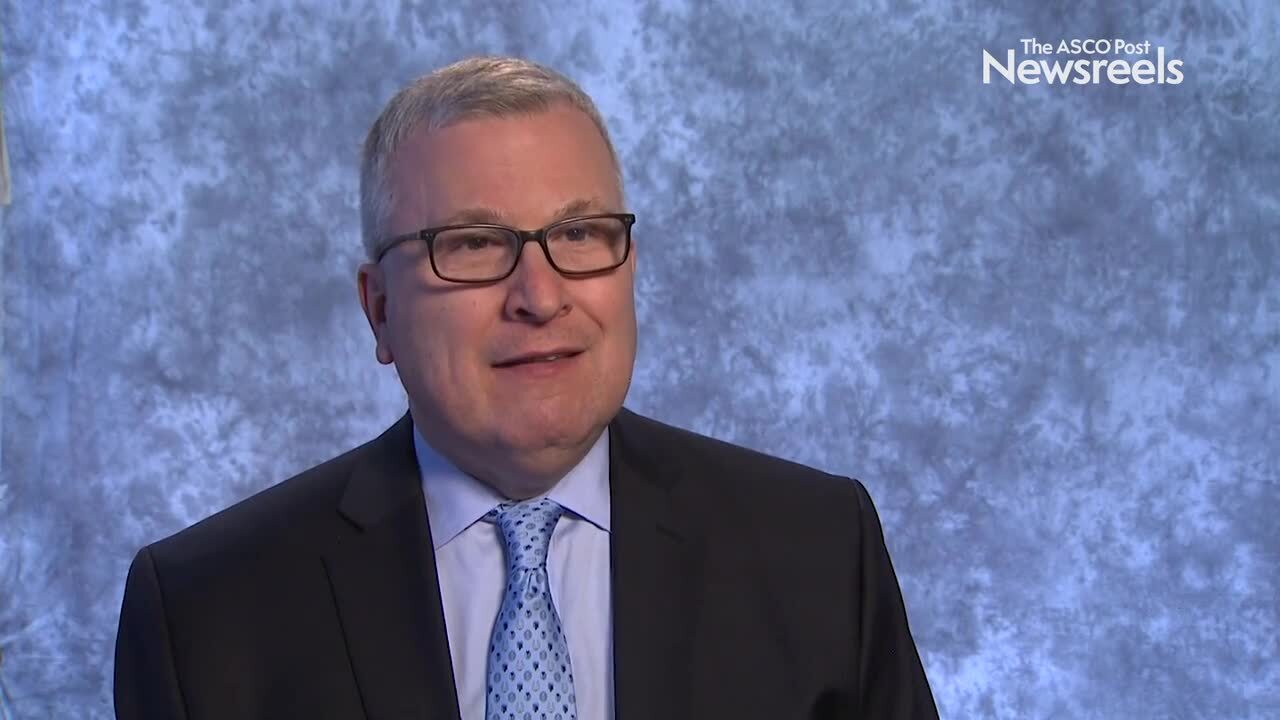Saar I. Gill, MD, PhD, on CLL: Trial Results on Anti-CD19 CAR T Cells
2018 ASH Annual Meeting & Exposition
Saar I. Gill, MD, PhD, of the University of Pennsylvania, discusses findings from a prospective clinical trial on the high response rate in patients with chronic lymphocytic leukemia who received a combination therapy of CAR T cells plus ibrutinib (Abstract 298).
Alexander B. Pine, MD, PhD, of Yale School of Medicine, discusses a survey gathering data on health-care providers’ practices and preferences in using direct oral anticoagulant therapy to treat venous thromboembolism.
Readers of The ASCO Post are invited to participate in this research by completing the survey, entitled: “Perspectives and Practices in Utilization of Direct Oral Anticoagulants in Patients With Cancer-Associated Venous Thromboembolism.” The survey takes approximately 3 to 4 minutes to complete and can be taken on a mobile device or a computer. The survey link is https://yalesurvey.ca1.qualtrics.com/jfe/form/SV_3l0HxrreWZhVtBz.
Mikkael A. Sekeres, MD, of the Cleveland Clinic, discusses phase III study findings on luspatercept to treat anemia in patients with very low-, low-, or intermediate-risk myelodysplastic syndromes with ring sideroblasts who require red blood cell transfusions (Abstract 1).
Francesca M. Gay, MD, of GIMEMA, European Myeloma Network, discusses study findings on the use of carfilzomib in induction combination regimens with autologous transplantation, and consolidation regimens in newly diagnosed multiple myeloma (Abstract 121).
Gilles A. Salles, MD, PhD, of Centre Hospitalier Lyon Sud, discusses trial findings on the monoclonal antibody MOR208 combined with lenalidomide in people with relapsed or refractory diffuse large B-cell lymphoma (Abstract 227).
John P. Leonard, MD, of Weill Cornell Medicine/Cornell University, discusses phase III findings on lenalidomide plus rituximab vs rituximab plus placebo for people with relapsed or refractory indolent non-Hodgkin lymphoma (Abstract 445).
